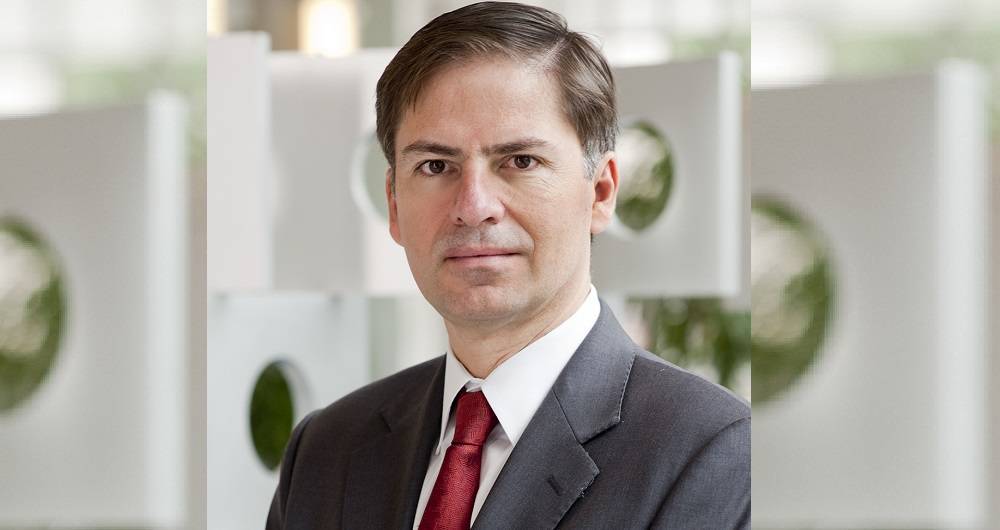Closing the Digital Gap to End Poverty in Latin America and the Caribbean
Op-ed by Carlos Felipe Jaramillo, World Bank Vice President for Latin America and the Caribbean
The digital economy, connectivity and the possibilities offered by remote work have emerged as a shelter from the devastating effects of the Covid-19 pandemic for many social and economic sectors of Latin America and the Caribbean. But not everyone has access to such protections.
Access to Internet broadband is less than 50 percent in the region, which leads to digital exclusion and limited opportunities for many. There has been talk of the "digital poor" for some time. In these times of Covid-19, this means that millions of people – far too many -- do not have access to many benefits including remote employment opportunities, financial services, online education and vocational training.
The nature of work is changing and there are trends that will persist even after the pandemic. Digital platforms, for example, offer previously unimaginable opportunities for professionals, service providers, independent workers, and small producers and traders in rural communities. In addition to the domestic market, there are enormous possibilities for offering products and services on the international market.
However, getting aboard the digital economy train will require expanding connectivity. The recent World Bank report Going Viral: Covid-19 and the Accelerated Transformation of Jobs in Latin America and the Caribbean highlights the vital importance of greatly expanding Internet access and the penetration of smart telephony in the new work environment. Unfortunately, our region lags behind others around the world. It is a digital divide that exacerbates inequities rather than promote equality.
Challenges that must be immediately addressed include closing that gap, promoting human capital development and creating opportunities in the labor market of the future for the enormous mass of workers in the informal economy, which has been hit hard by the pandemic.
Every year since 1993, we have observed the International Day for the Eradication of Poverty on October 17. It is a good opportunity to highlight the challenges of this new form of exclusion. This must be urgently addressed for inclusive growth in the region - growth that offers opportunities for all and an escape from poverty for the most vulnerable sectors.
The pandemic had a huge impact on Latin America, with a projected 7.9 percent decline in regional GDP in 2020. Some 25 million jobs could disappear. In terms of poverty, we’ve lost much of the gains made during the past two decades. According to our estimates, which are included in the recent semi-annual report The Cost of Staying Healthy, more than 50 million people could slip back into poverty this year. It is a frankly bleak scenario, aggravated by the limited fiscal capacity that the countries of the region have today.
Everyone connected
Job creation is the most effective way to eradicate poverty, making it essential to invigorate the economies of the region as we face the post-pandemic recovery. This requires promoting production, trade and the supply of services, much of which are already digitally based.
However, to take advantage of the growth opportunities in many economic sectors, we must promote innovation, improve productivity and - above all - boost digital inclusion. Sales through e-commerce platforms, online services and the survival of thousands of small and medium-sized businesses during the social distancing stage were made possible by Internet access in millions of households.
Many more must be connected, and we are working hard to make this happen. The World Bank approved a US$94-million program in June to support digital transformation and inclusion in the Caribbean. Additionally, a digital acceleration project for US$60 million was recently approved for Haiti. In Brazil, we are advising the government on the registration of informal workers through the use of digital identity systems to enable them to receive financial assistance. The reconstruction phase in our countries will require more programs like these.
During the emergency, the governments of the region must use limited resources efficiently. Direct assistance to the most vulnerable sectors will probably be needed for some time to come, but it will also be essential to reduce public debt to sustainable levels. These priorities will compete with the investments required to create jobs and develop the infrastructure needed to rebuild economies, as well as the support necessary to improve Internet connectivity and broadband access.
The benefits will be both immediate and long-term. Guaranteeing better Internet access for everyone is equivalent to multiplying educational, training and employment opportunities for the population. In other words, it will equip the population with more tools to address the enormous challenges of the future.
Carlos Felipe Jaramillo is the Vice President of the World Bank for Latin America and the Caribbean
